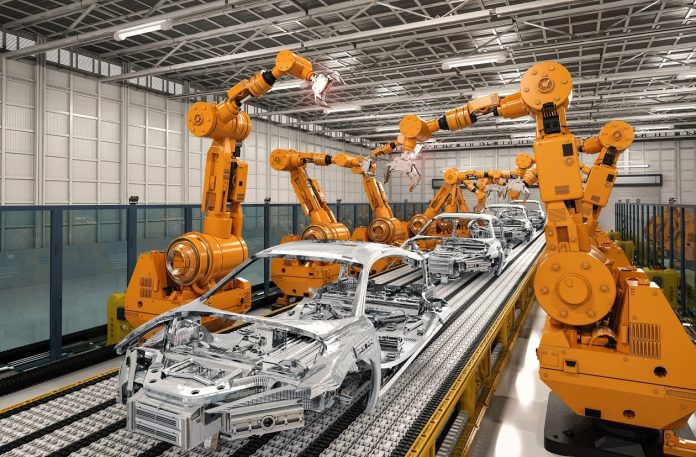Incoming 5G technologies will be key for higher reliability and lower latency of industrial automation processes, said Bosch Rexrouth, the automation technology unit of German industrial giant Bosch Group, ahead of the Hannover Messe 2019 next week.
Bosch reckons the so-called Industry 4.0 movement, capturing the digital transformation of the industrial sector, has reached a more practical phase, at last. “While some still regard the factory of the future as a distant vision, others are increasingly turning it into a reality,” it said.
Bosch Rexroth’s stand at the Hanover trade fair, expected to host 210,000 visitors, will show both available solutions and future concepts. LTE has a key role in the development of existing Industry 4.0 solutions, and 5G will make real its vision of digital change. “The integration of the new 5G mobile radio standard for wireless real-time communication into all automation solutions plays an important role in all this,” said Bosch Rexrouth.
Heiner Lang, head of the automation and electrification solutions division at Bosch Rexroth said Bosch is merging classic factory automation and information technology, and enabling interoperability through open standards like 5G, as well as open industrial protocols like OPC ‘unified architecture (OPC UA) and time-sensitive networking (TSN).
“Software and hardware are decoupled, thus optimising flexibility and economy for the customer. The focus is on the automation solution, which is technically and commercially scalable on the basis of a Rexroth product architecture,” he said.
Bosch Rexroth is part of a consortium of industrial tech providers seeking to establish new OPC-UA based communications. Others include ABB, Belden, B&R, Cisco, Hilscher, KUKA, National Instruments, Parker Hannifin, Phoenix Contact, Pilz, Rockwell Automation, and Schneider Electric
The emergence of the OPC UA over TSN (OPC-UA TSN) communications stack, backed by the same band of automation specialists, is a key part of the developing industrial IoT narrative, with halting technological innovation and industrial transformation set to be kick-started by its release and deployment in smart factories.
Bosch Rexrouth said advanced manufacturing operations are already make use of a number of apps and browser-based programs for subtasks in production. It cited a number of examples of its own. These include: mobile-based digital service assistants for wireless fault diagnosis; new connected hydraulic power units; plug-and-play systems for fitting and pressing components; autonomous factory transport units; and fully automated and connected additive manufacturing.
Bosch Rexroth supplies drive and control technologies, including hydraulics, electric drive and to animate industrial machines and systems. It employs 30,500 staff and generated sales of €5.5 billion in 2017. The Bosch Group, as a whole, employs 410,000 people and generated sales of €77.9 billion in 2018.
Günter Krenz, head of the assembly technology division at Bosch Rexroth, said: “In intralogistics, new ways of avoiding waste are emerging. Today, production-related warehouses often take up more space in the hall than the actual production line. We can significantly reduce inventories in production through intelligent and autonomous solutions.”
Ulf Lehmann, head of the linear motion technology at Bosch Rexroth, said: “It will become increasingly important in the future for designers to be able to integrate linear technology into their digital workflow and network it in the application. Digitised linear technology not only shortens the engineering process, it also provides important data for predictive maintenance and process optimization in the machine through integrated sensors”.
Steffen Haack, head of the industrial hydraulics at Bosch Rexroth, said: “Hydraulics can no longer be reduced to their inherent power density and robustness. It is intelligent and networkable, easy to integrate and commission. The metamorphosis towards a modern technology with a really fun application is in full swing.”
Bosch Group divides into four business sectors: mobility solutions, industrial technology, consumer goods, and energy and building technology.

